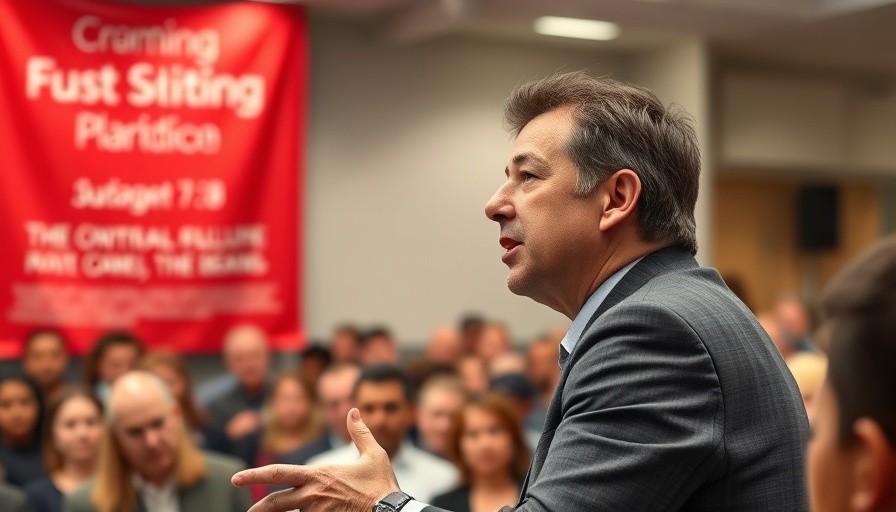
The Unyielding Struggle: Workers in South Africa
On the heels of Workers’ Day, ANC Deputy President Paul Mashatile addressed a critical issue facing South Africa: the persistent struggles of workers against a backdrop of inequality and unemployment. Speaking at a Congress of South African Trade Unions (COSATU) rally in Durban, Mashatile's message resonated with urgency as he highlighted the ongoing plight facing millions in the workplace.
Rising Youth Unemployment: A National Crisis
Among the numerous challenges outlined by Mashatile, youth unemployment stands out as a pressing issue. With a staggering rate of 59%, this number highlights a generation sidelined and without opportunities. The lack of support for young people has profound implications for the country's economic future, as an educated and employed youth cohort is vital for sustainable growth.
Wage Disparity: An Economic Illusion
The deputy president pointedly noted the persistent wage imbalance between executives and general workers. This disparity not only underscores inequality within the workforce but also raises questions about the integrity of South Africa's economic system. Despite the Freedom Charter's ideals which envisioned shared wealth, many individuals still find themselves struggling to achieve even basic financial stability. The call for equitable pay is a crucial component of the broader struggle for workers’ rights.
Economic Freedom: A Distant Dream
During his address, Mashatile emphasized that the dream of economic freedom remains unfulfilled. He criticized government systems that have yet to dismantle economic structures preventing equitable distribution of resources. In recent years, South Africa has grappled with bouts of load shedding and crises stemming from state capture, both of which have undermined the economic landscape.
Emphasizing Skills Development and Education
In addition to highlighting unemployment and wage disparity, Mashatile called for renewed focus on skills development as a means to address workforce inadequacies. South African workers face a dual crisis of both unemployment and a shortage of skills necessary for the modern job market. Developing innovative training programs and partnerships with educational institutions could help bridge these gaps.
Community and Collective Action: A Path Forward
As South Africans navigate these complex challenges, Mashatile's words signal the importance of community and direct action. The role of trade unions, civic organizations, and grassroots movements cannot be understated in the fight for justice and equity. Ensuring that workers have a collective voice is essential, particularly in the face of growing inequalities exacerbated by the COVID-19 pandemic.
Looking Ahead: Possible Solutions and Strategies
As South Africa continues to struggle with high unemployment rates and systematic inequalities, a collective approach appears necessary. Government policies could shift towards fostering an environment conducive to job creation, particularly focused on sustaining small businesses and startups—especially in the tech sector and green energy initiatives. These steps could pivot the national economic recovery towards inclusivity and resilience, ultimately benefiting the wider populace.
The Road to Freedom: Keeping the Pressure on Leadership
With the journey toward economic freedom yet to be traversed, ongoing dialogue surrounding policies and legislation will remain crucial. It is imperative for citizens to hold their leaders accountable and ensure that their voices reflect the true state of the nation. The fight for social justice extends beyond the May Day speeches; it requires persistent engagement from all sectors of society.
In conclusion, Mashatile’s address serves as both a call to action and a reminder of the work that lies ahead. It emboldens South Africans to continue advocating for an equitable economic framework, ensuring that the dream of a truly free and equal society is not just an aspiration, but a reality.
 Add Row
Add Row  Add
Add 




Write A Comment